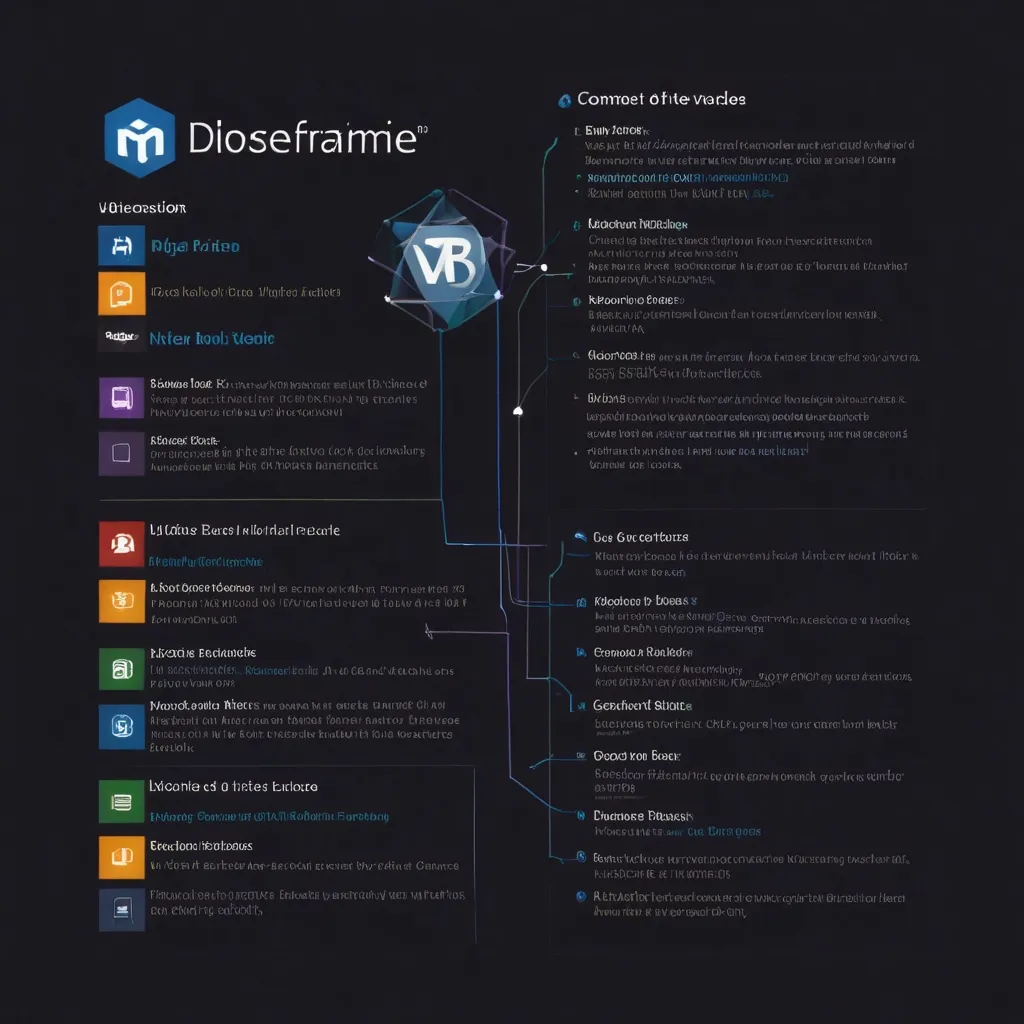Functional programming in C++ has come a long way, and it’s pretty cool to see how we can use lambdas and higher-order functions to write cleaner, more expressive code. Let’s dive into some techniques that’ll make your C++ more functional and maybe even a bit more fun.
First off, lambdas. These little anonymous functions are like magic wands for functional programming in C++. You can create them on the fly and pass them around like any other object. It’s like having a Swiss Army knife in your code pocket.
Here’s a simple example:
auto add = [](int a, int b) { return a + b; }; std::cout << add(3, 4); // Outputs: 7
See how easy that was? We just created a function without all the usual ceremony. But lambdas can do so much more. They can capture variables from their surrounding scope, making them incredibly flexible.
Let’s say you want to create a function that returns another function. That’s where higher-order functions come in. Check this out:
auto multiplier = [](int x) { return [x](int y) { return x * y; }; };
auto times_two = multiplier(2); std::cout << times_two(4); // Outputs: 8
Mind blown yet? We just created a function that creates other functions. That’s the power of higher-order functions and lambdas working together.
But wait, there’s more! C++ also gives us some built-in higher-order functions through the algorithms library. Let’s take a look at some of these bad boys.
std::transform is like a supercharged map function. It applies a function to each element of a container and stores the result in another container. Here’s how you might use it:
std::vector
Now squared contains {1, 4, 9, 16, 25}. Pretty neat, huh?
std::for_each is another handy tool. It applies a function to each element of a container, but doesn’t create a new container. It’s great for when you want to do something with each element but don’t need to transform them.
std::for_each(numbers.begin(), numbers.end(), [](int x) { std::cout << x << ” ”; });
This would print out all the numbers in our vector.
Now, let’s talk about std::accumulate. This bad boy is like reduce in other languages. It applies a binary operation cumulatively to the elements of a range. Here’s a simple example:
int sum = std::accumulate(numbers.begin(), numbers.end(), 0);
This adds up all the numbers in our vector. But we can do more complex things too:
int product = std::accumulate(numbers.begin(), numbers.end(), 1,
std::multiplies
This multiplies all the numbers together.
But what if we want to filter our data? That’s where std::copy_if comes in handy. It’s like filter in other functional languages:
std::vector
Now evens contains only the even numbers from our original vector.
These are just a few examples of how we can use functional programming techniques in C++. But there’s so much more we can do!
One cool thing about functional programming is how it encourages us to think about our code in terms of data flow rather than step-by-step instructions. This can lead to more robust, easier to understand code.
For instance, let’s say we want to find the sum of squares of even numbers in a vector. In a more traditional imperative style, we might write something like this:
int sum_of_squares = 0; for (int num : numbers) { if (num % 2 == 0) { sum_of_squares += num * num; } }
But with functional techniques, we can express this more declaratively:
int sum_of_squares = std::accumulate(numbers.begin(), numbers.end(), 0, [](int sum, int num) { return (num % 2 == 0) ? sum + num * num : sum; });
This version clearly expresses what we’re doing without getting bogged down in the how. It’s like telling a story about our data, rather than giving a set of instructions.
Another powerful concept in functional programming is function composition. This is where we create new functions by combining existing ones. C++ doesn’t have built-in support for this, but we can create our own:
template<typename F, typename G> auto compose(F f, G g) { return [=](auto x) { return f(g(x)); }; }
Now we can do cool stuff like:
auto square = [](int x) { return x * x; }; auto increment = [](int x) { return x + 1; }; auto square_then_increment = compose(increment, square);
std::cout << square_then_increment(4); // Outputs: 17
This is just scratching the surface of what’s possible with functional programming in C++. The more you use these techniques, the more you’ll find yourself thinking in terms of functions and data transformations rather than loops and state changes.
One thing to keep in mind is that while these techniques are powerful, they’re not always the best solution for every problem. C++ is a multi-paradigm language, and sometimes a more traditional object-oriented or procedural approach might be more appropriate. The key is to use the right tool for the job.
That said, incorporating functional techniques into your C++ toolkit can make your code more expressive, easier to reason about, and in some cases, more efficient. Modern C++ compilers are pretty smart about optimizing these higher-order functions and lambdas, so you often get the readability benefits without sacrificing performance.
Speaking of performance, one of the cool things about C++ is that we can use these high-level functional concepts without giving up low-level control when we need it. For example, we can use custom allocators with our containers to fine-tune memory usage, or we can use std::execution policies with our algorithms to parallelize operations when appropriate.
Here’s an example of using an execution policy to parallelize our earlier transform operation:
std::vector
std::transform(std::execution::par, numbers.begin(), numbers.end(), squared.begin(), [](int x) { return x * x; });
This tells the compiler that it’s safe to parallelize this operation, potentially giving us a nice performance boost on multi-core systems.
Another powerful technique in functional programming is partial function application. This is where we create a new function by fixing some of the arguments of an existing function. C++ doesn’t have built-in support for this, but we can implement it ourselves:
template<typename F, typename T, typename… Args> auto partial(F f, T value, Args… args) { return [=](auto… rest) { return f(value, args…, rest…); }; }
Now we can do things like:
auto add = [](int a, int b) { return a + b; }; auto add_five = partial(add, 5); std::cout << add_five(10); // Outputs: 15
This is super useful for creating specialized functions from more general ones.
Recursion is another important concept in functional programming. While C++ isn’t optimized for recursion like some functional languages, we can still use it effectively:
std::function<int(int)> factorial = [&factorial](int n) { return n <= 1 ? 1 : n * factorial(n - 1); };
std::cout << factorial(5); // Outputs: 120
The std::function here allows us to create a recursive lambda, which is pretty neat.
One area where functional programming really shines is in handling asynchronous operations. C++11 introduced std::future and std::promise, which work great with lambdas for writing asynchronous code in a functional style:
std::future
std::cout << “Doing other work…\n”; std::cout << “The answer is: ” << f.get() << “\n”;
This allows us to write non-blocking code that’s easy to reason about.
As you dive deeper into functional programming in C++, you’ll start to see how these techniques can make your code more modular and easier to test. Because pure functions always produce the same output for a given input and don’t have side effects, they’re incredibly easy to unit test.
You might also start exploring more advanced functional concepts like monads. While C++ doesn’t have built-in support for monads, you can implement them yourself. The std::optional type introduced in C++17 is actually quite similar to the Maybe monad in Haskell.
Remember, the goal of using functional programming techniques isn’t to make your C++ look like Haskell or Lisp. It’s to leverage the strengths of functional programming within the C++ ecosystem. Use these techniques where they make your code clearer and more maintainable, but don’t be afraid to mix paradigms when it makes sense.
In conclusion, functional programming in C++ opens up a whole new world of expressive, powerful coding techniques. From simple lambdas to complex higher-order functions, from easy-to-reason-about pure functions to powerful asynchronous patterns, functional programming can revolutionize the way you write C++. So go forth and func it up! Your future self (and your code reviewers) will thank you.





